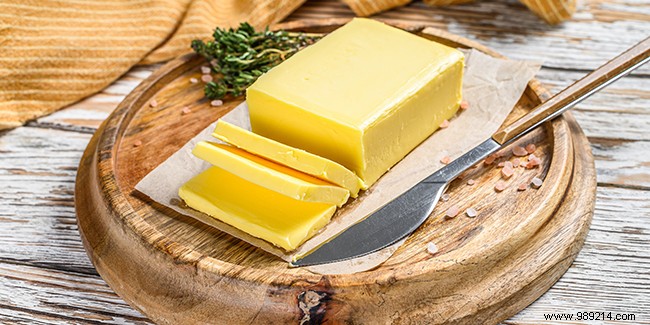
Like many foods, consumed in moderation, butter has beneficial effects on our body and our health. It contains in particular vitamins and proteins necessary for the proper functioning of our body. It is also recommended for the elderly in particular to fight against malnutrition, a phenomenon that can occur with age. On the other hand, abusing butter in your diet can promote the occurrence of cardiovascular diseases or contribute to overweight.
Butter is one of the fats of animal origin (oils are fats of vegetable origin), components necessary for our body to stay healthy. These fats provide energy, vitamins, fatty acids, and are essential for the good constitution of our cells in particular.
For the elderly, butter is particularly important in their diet to combat undernutrition, loss of appetite due to feeling full more quickly with age, more common loss of taste, problems with chewing caused by certain illnesses, or by taking medications that suppress the appetite.
Butter indeed contributes to providing proteins, the needs of which are greater in seniors. They also help to limit, among other things, the muscle wasting that seniors experience with advancing age. This is why it is important for the elderly to have a diet enriched with butter, i.e. a little more than 10 to 15 grams per day, the consumption recommended in normal times.
Butter also contains vitamins, especially vitamin A, which has benefits for the skin and eyesight, and vitamin D, which is important for bone health and our immune system, among other things.
If, as a fat, butter contributes to the proper functioning of our body, it should not however be consumed in large quantities to preserve our health.
Butter indeed contains saturated fatty acids, such as cheese, fatty meats or fresh cream, which, consumed in excess, promote the occurrence of cardiovascular diseases, that is to say pathologies that affect the heart and blood vessels. In addition, eating too much butter can also contribute to overweight and obesity.
In terms of added fats, which are also called "visible" fats, such as the butter used for cooking or on toast, it is necessary to consume them in small quantities without eliminating them. totally taking into account their nutritional qualities and therefore their beneficial role on our organism.
Thus, with regard to butter in particular, it is advisable to use it rather in moderation and especially raw on toast at breakfast, in the form of hazelnuts melted on vegetables, etc.
To avoid using it cooked, which is not good for your health because cooking butter produces chemicals that are harmful to the body. When cooking food in a pan, for example, it is preferable to use oil as fat. It is also possible to promote cooking without fat, steaming, steaming, grilling, en papillote, wok, etc.
Another solution to limit your butter consumption could be to turn to low-fat butters, "light butters". But beware, even if they are a good way to limit fat intake in your diet, these products contain additives that can have harmful effects on your health. It should therefore be avoided. As Public Health France, the national public health agency, indicates, "20 grams of light butter provide the same amount of fat as 10 grams of conventional butter", and adds:"the mention reduced in fat does not mean zero fat but refers to a 30% reduction in fat compared to a standard product". /strong> which is a processed industrial product.